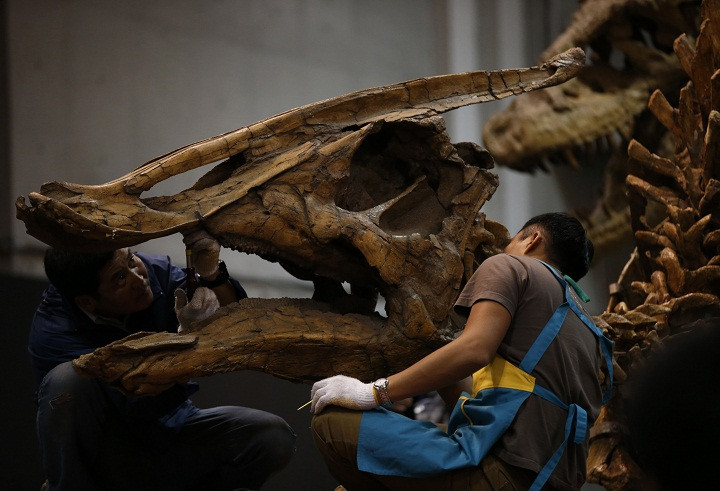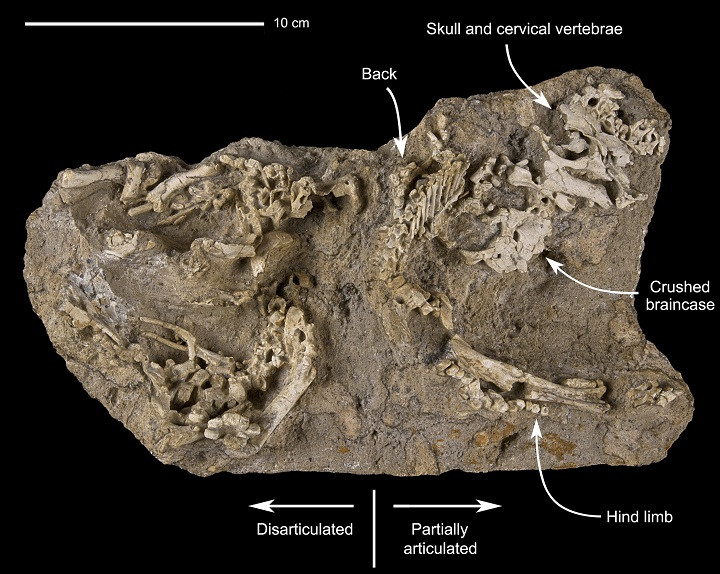Fossils of duck-billed herbivore baby dinosaurs unearthed in Mongolia

The fossils of 'duck-billed' baby dinosaurs have been unearthed in the Gobi Desert in Mongolia. They are the youngest ever discovered of a type of hadrosaurs (herbivore dinosaurs) who lived about 70 million years ago, and scientifically known as Saurolophus angustirostris, which means "lizard crest."
Although the saurolophus family is a well known species to paleontologists, this is the first time embryonic remains of this species have been found. This discovery will help scientists take a unique look into their growth over the life span of this extinct animal.
The report in PLOS ONE describes the find as a compact blob of rock, scarcely a foot long that holds the skeletons of at least three baby dinosaurs. The little critters were scarcely six inches tall at the hip when alive, and well under two feet in total body length. In comparison, a grown up version of these herbivores could measure up to 40ft long and weigh more than two tonnes.

The most distinctive feature of the Saurolophus, however, is its cranial crest. It is long and spike-like and projects upward and backward at about a 45 degree angle, starting from over the eyes. The three or four babies described in the paper did not yet have this cranial crest, and their skulls were not yet fused, suggesting they were in the early stages of development. Scientists are also not sure if they had hatched or if they died while still in their shells.
The first described remains of Saurolophus were discovered in 1911 in Canada and included a nearly complete skeleton. Other skeletons from a variety of growth stages have also been discovered since then and Saurolophus angustirostris is in fact now the most abundantly found Asian hadrosaur.
Dragon's Tomb, in the Nemegt basin in the north-western Gobi Desert, is a well-known location to find Late Cretaceous (younger of the cretaceous periods) dinosaur fossils. The Saurolophus angustirostris was one of the largest herbivores of this Nemegt Formation.
© Copyright IBTimes 2025. All rights reserved.





















